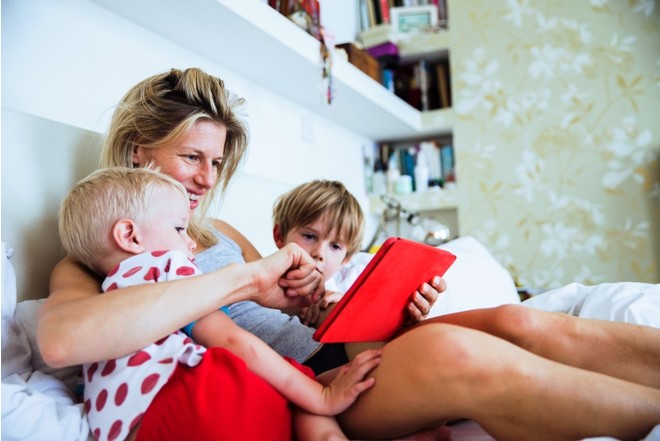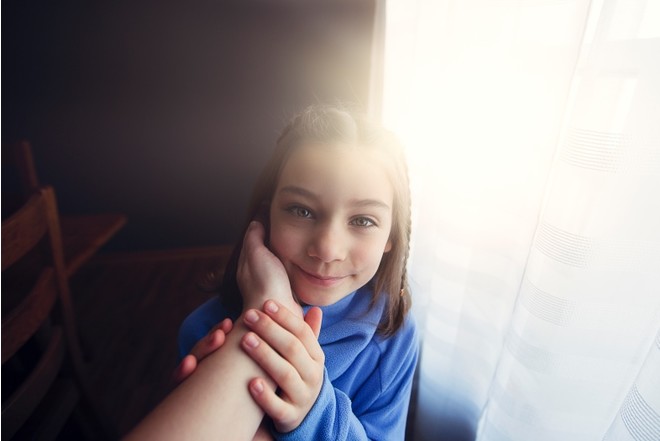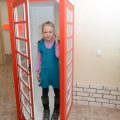Remember this joke that when a motherone child, she irons the clothes, and sterilizes the nipple every time she falls to the floor, and when the three children - thank God that the child eats the cat's food, and does not climb into the trash? It's so funny because it's based on pure truth. Photo: GettyImages
Photo: GettyImages
Attention and happiness
“With my first child, I changed the diaper right away,how he would get wet. With the second one… his diaper would hang down significantly under his bottom before I noticed it. It makes me feel like a terrible mother." Tatyana, mother of two sons (Tima is 4, Max is 2). - We assume that the more we care for a child, the better, - says child psychologist Angard Rudkin, father of three children. - But many children need more personal space than we leave, being too intrusive. It turns out that overprotection is not always good. What is more important here is the fact that the second child has experienced parents. In addition, there are always a lot of people around him. A baby, as an initially social creature, feels this. And he develops a sense of security, which is so necessary for him. In addition, the quantity of attention is not as important as its quality. - Even if you do not immediately approach the child when he requires it, this will not cause emotional harm to him. "If, of course, the wait is within reasonable limits," says clinical psychologist Dr. Rachel Andrew. "If you try to give each child an equal amount of care, you yourself will quickly become nothing. But here the child learns patience, and this is also not bad.
Trust your intuition
“We had a whole bunch of evenings with Sarahrituals – splashing around in the bath to our heart’s content, massage, lullaby, book… I get so tired with Anna during the day that I quickly rinse her off in the bath, tell her a short story before bed – and that’s it. But they both sleep, they feel good – and we’ve lived another day. That’s a result too!” Evgeniya, mother of two daughters (Sarah is 5, Anna is 1). It’s very important to feel your child. And to trust your “inner radar”, and not some dogma about how much communication your child needs per day. “Children themselves will tell you how to behave,” says Dr. Rudkin. “If they feel great playing with a wooden spoon or their bottle, let them do it. If they become anxious, perhaps they really do not have enough of your care. All children are different, and what works for one may not work for another. And always remember – you are the best mother for your child. – Sometimes parents forget about themselves because they are going out of their way to care for their child, trying to satisfy and anticipate all his possible needs, – says Dr. Andrews. – But you must remember that you are also a person. And you also have needs. Mothers who have many children eventually get used to the fact that someone is always whining. And this someone is different every time. And they learn to juggle their own and other people's priorities. This is not easy – because the feeling of parental guilt comes into play. – You constantly reproach yourself for not doing everything perfectly, for not having time for everything. Stop it! It is not far from depression. It is better to ask yourself – what does your child really need here and now and what can you give him. It will turn out that you can do everything, – advises Dr. Andrews. In fact, it is good to be a second child. After all, the second child always has a company to play with, someone who will stand up for him at school and tell him how long he can test his parents’ patience. Photo: GettyImages
Photo: GettyImages
Wines before the first
“I always pay very close attention to whatMasha ate, as she behaves at the table. And her older brother can spread porridge on the table in fancy ways for about ten minutes before I notice it. From the outside, it may seem that I don’t think about him at all…” Yulia, mother of three-year-old Artur and one-year-old Masha. Irina Chistyakova, educational psychologist, gestalt therapist, consultant in the field of clinical psychology, talks about the other side of the second-child syndrome: - Many Russian mothers are more likely to feel guilty before their older child, because they have to pay less attention to him than before. They turn to a psychologist with the problem of jealousy between children, but in fact they are trying to cope with their own feelings of guilt and emotional dissatisfaction. And if the age difference between the babies is small, then hormonal disruptions associated with pregnancy and breastfeeding add fuel to the fire. The psychologist advises that you should contact specialists regarding disorders of the endocrine system, they will prescribe you a course of necessary medications and vitamins. It is equally important to involve your husband and relatives in helping you. Let them help you distribute your attention between the children so that there is separate time for each, separate time for playing together, and separate time for yourself. - If these measures do not help, you can contact a good psychotherapist for a family consultation. And do not forget to tell your children how much you love them, how dear they are to you. Often, adults do not attach much importance to words. But children constantly need confirmation. This will help build a trusting relationship with the child, and you will cope with the feeling of guilt, - the psychologist added.









